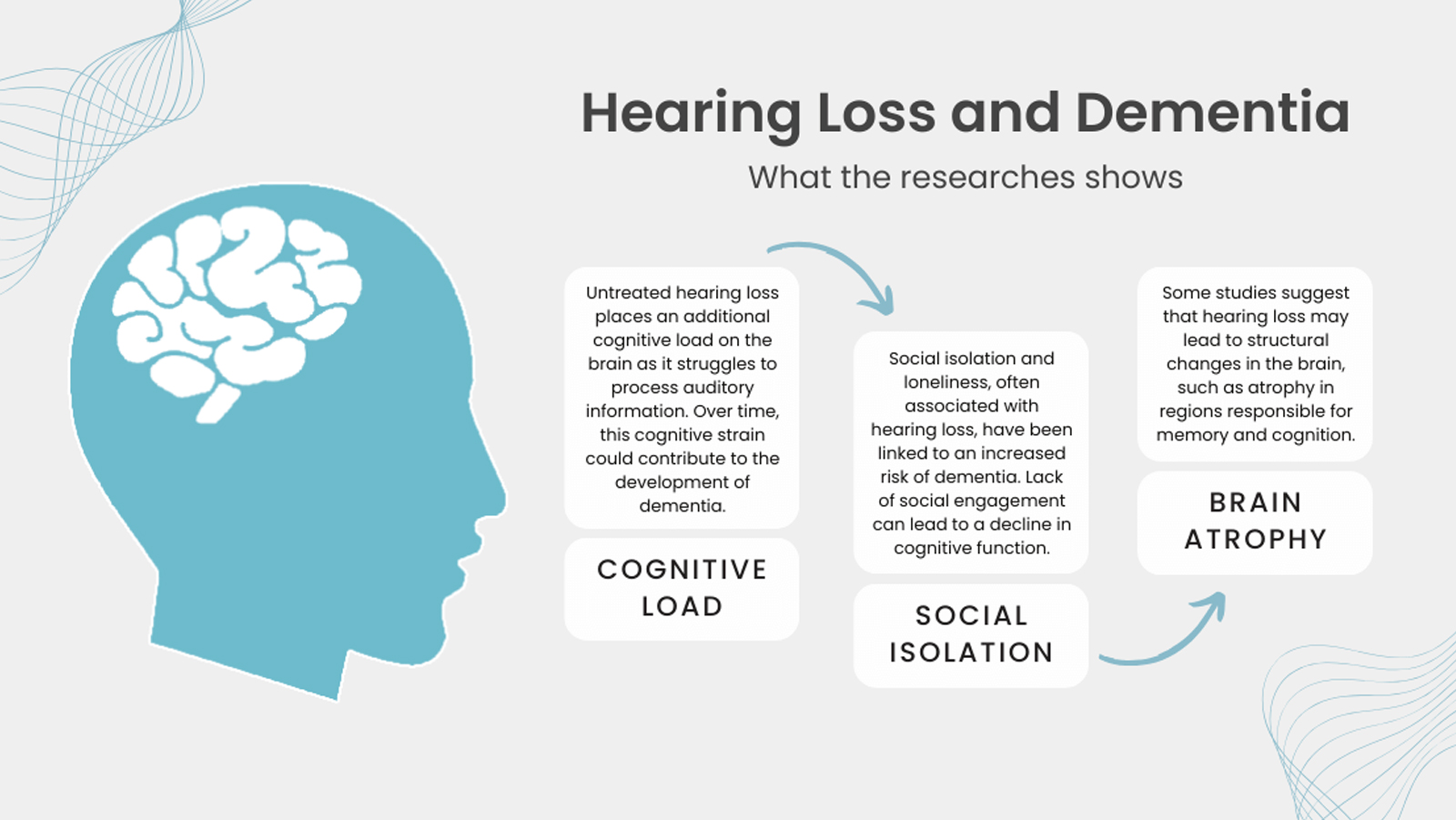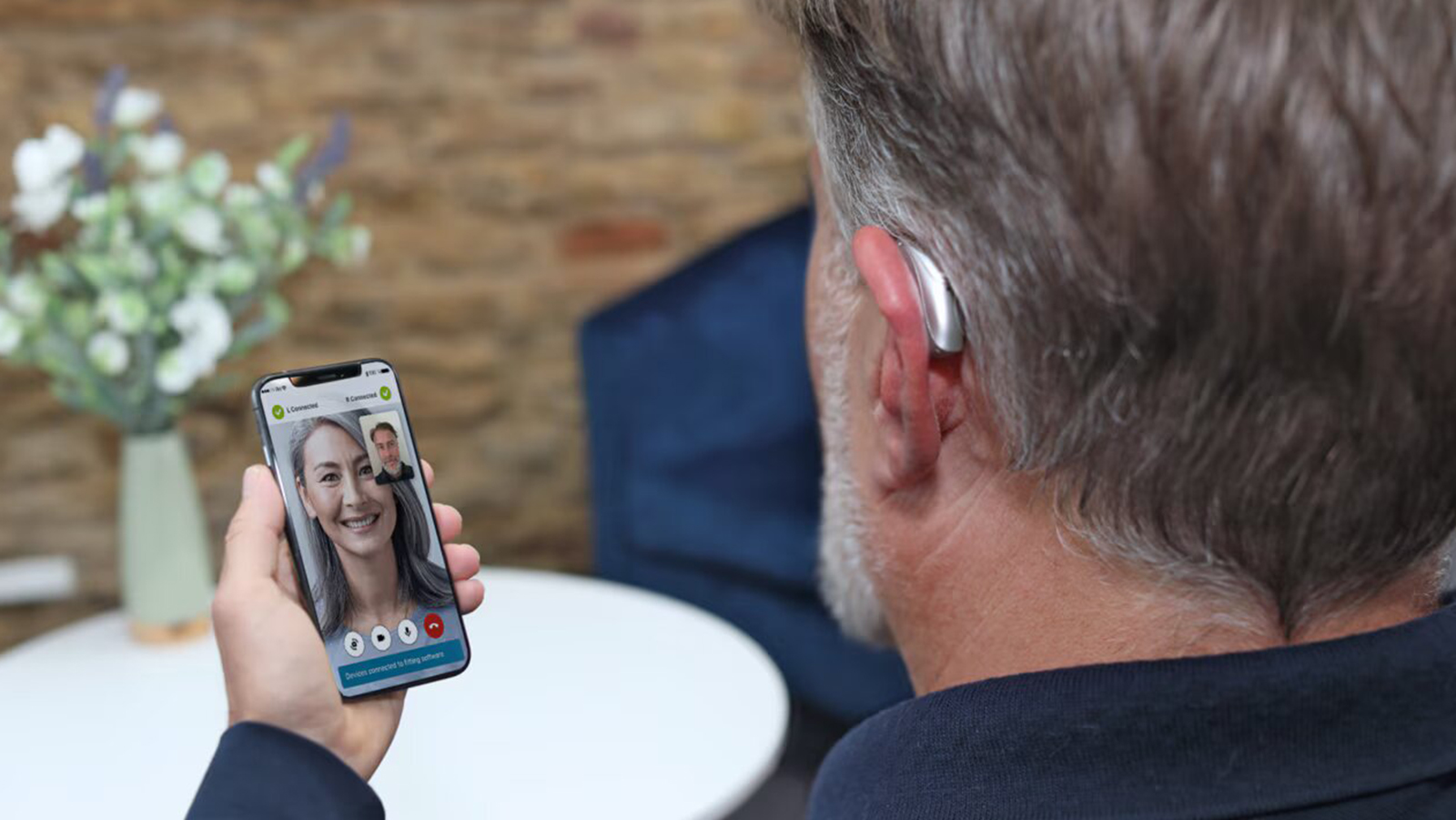Hearing Loss and Dementia: Understanding the Connection on World Alzheimer’s Day

As we mark World Alzheimer’s Day on September 21st, it’s important to bring attention to a lesser-known link: the connection between hearing loss and dementia. Research shows that individuals with untreated hearing loss are more likely to develop cognitive decline, including dementia, over time. This is a critical issue that affects millions, including many in Sri Lanka.
How Hearing Loss Contributes to Dementia

Dementia is a global health crisis characterized by a decline in cognitive abilities severe enough to interfere with daily life. Alzheimer’s disease is the most common cause of dementia, accounting for approximately 60-70% of cases. As the population ages, the prevalence of dementia is expected to increase significantly, making it a major public health concern.
Hearing loss reduces the brain’s stimulation, causing it to work harder to process sounds. Over time, this extra cognitive load can lead to memory issues, confusion, and diminished mental function. Social isolation is another contributing factor, as people with hearing loss tend to avoid conversations, reducing their mental engagement-an important aspect of cognitive health.
Researchers have proposed various mechanisms that could explain the link between hearing loss and dementia:
- Cognitive Load: As mentioned earlier, untreated hearing loss places an additional cognitive load on the brain as it struggles to process auditory information. Over time, this cognitive strain could contribute to the development of dementia.
- Social Isolation: Social isolation and loneliness, often associated with hearing loss, have been linked to an increased risk of dementia. Lack of social engagement can lead to a decline in cognitive function.
- Brain Atrophy: Some studies suggest that hearing loss may lead to structural changes in the brain, such as atrophy in regions responsible for memory and cognition. These changes may be a contributing factor to the development of dementia.
- Shared Risk Factors: It’s important to note that hearing loss and dementia share common risk factors, such as cardiovascular disease and diabetes. Addressing these risk factors through lifestyle modifications and medical interventions may be beneficial for both hearing and cognitive health.
Early Detection is Key
Research in recent years has provided promising insights into the potential benefits of hearing aids in preserving cognitive function. Identifying hearing loss early and addressing it with hearing aids or other treatments can significantly reduce the risk of cognitive decline. Devices such as rechargeable hearing aids not only improve hearing but also help keep the brain active, which can delay or prevent dementia.
A Special Message for Sri Lanka

In Sri Lanka, where many older adults experience hearing loss, raising awareness of its connection to cognitive health is vital. With the aging population on the rise, this link deserves attention, especially during Alzheimer’s awareness campaigns. On this World Alzheimer’s Day, let’s prioritize not only mental health but also hearing health. Regular hearing checks can be a crucial step in maintaining a sharper, healthier mind for years to come.
Schedule Your Hearing Consultation Today!
Schedule an appointment with us today! BOOK NOW and let our expert team of audiologists assess your hearing. We’ll provide accurate diagnosis, personalized treatment options, and expert guidance to help you manage your hearing health effectively.







